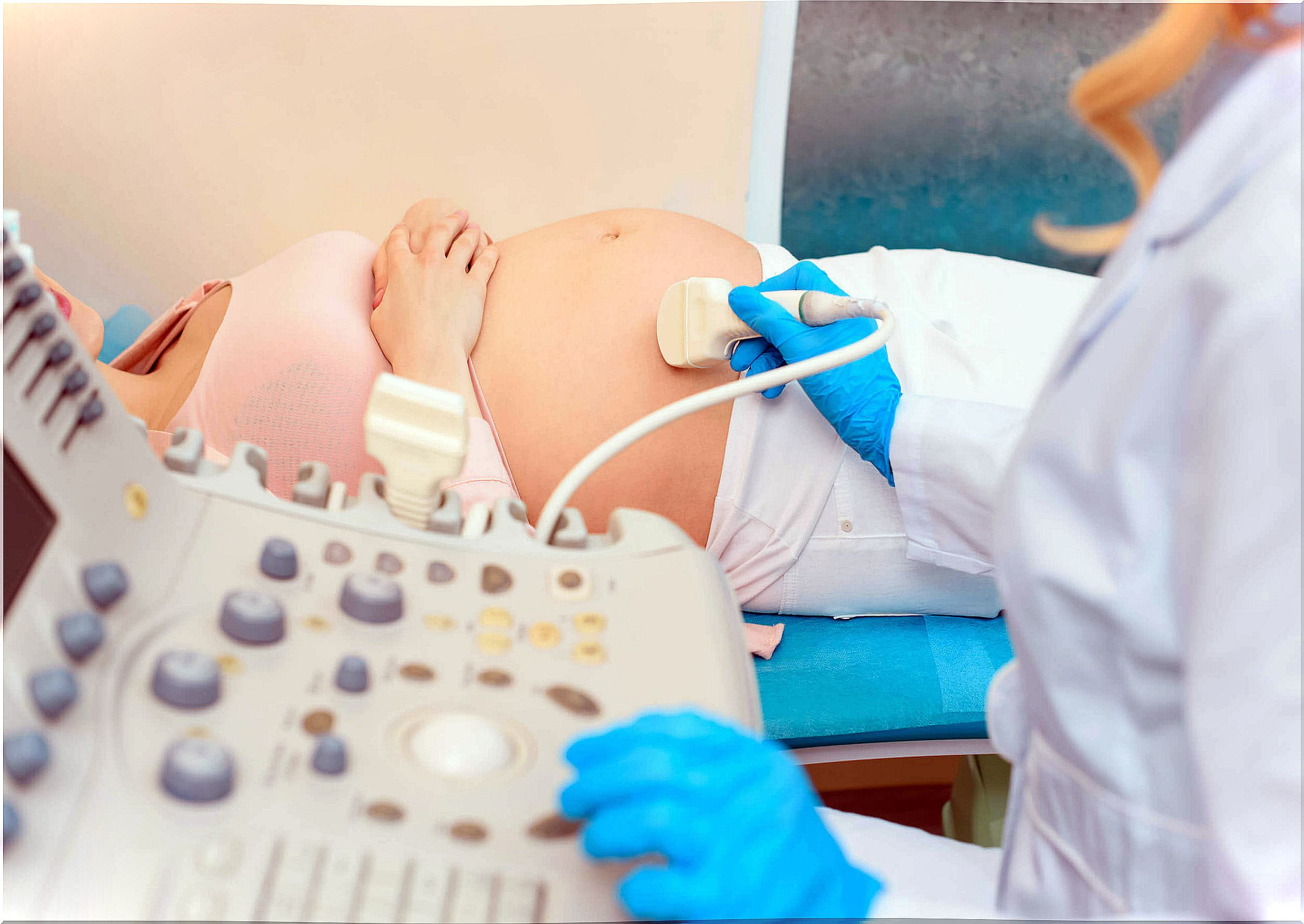Week 36 Of Pregnancy: What’s Going On? – Being Parents

You have reached week 36 of your pregnancy! The anxiety is increasing, the preparations are more and more rushed, the family is very excited and you want to hug your baby. Indeed , the little one is practically ready to discover the outside world.
There are certain symptoms that you need to watch out for which, if they occur, require urgent medical evaluation. We don’t want any problems in the future! If you want to know more about this and other aspects, we have prepared the following lines for you.
How is my baby doing at week 36 of pregnancy?

Welcome to the last days of pregnancy! Although a birth at this time is considered premature, it only takes a week for the baby to be full term. By now he should be around 17 inches tall and weigh around 2800 grams. It’s amazing how he grew up!
Since its size is large enough for your uterus, it should already be cephalic. That is to say with his head directed towards your pelvis. Some babies may not be well positioned yet, which is why obstetricians recommend maneuvers to change locations. It is therefore very important to consult a doctor before childbirth!
Besides, his organs are almost ready for the outside world. This includes the respiratory system, whose surfactant levels in the alveoli are already expected to be at optimal values, as well as the circulatory and immune systems. The nervous system should also be ready, and the baby may even react when it recognizes your voice.
The bones of the skull are already well formed and ready to overlap as they pass through the birth canal. Don’t be surprised if a small deformity is observed in the skull right after birth! It usually improves within a few hours. In addition, the baby’s skin becomes soft and lush and his gums harden.
Your baby makes meconium by ingesting lanugo and vernix caseosa along with other secretions, which it continues to release from its body. These substances are processed by his body to transform into a first bowel movement outside the uterus.
On the other hand, he loses most of his fluffy hair (lanugo), as well as the waxy substance ( vernix caseosa ) that protected his skin during his long amniotic bath. He swallows both substances, as well as other secretions. This gives a blackish mixture called meconium which will constitute the content of his first stools.
How does the mother feel during week 36 of pregnancy?
You are probably experiencing the same symptoms that bothered you so much during the last trimester of pregnancy. These include low back pain, nausea, anxiety, and insomnia. It is also normal for mild uterine contractions to become more and more frequent.
Since there are only a few days left until your baby is born, it is best that at week 36 you are more attentive to symptoms of a urinary tract infection (UTI). These are pain and burning during urination, sometimes accompanied by fever.
If this happens, you should seek immediate medical attention. The effects of a UTI can induce labor at the least expected time and can negatively affect your baby. Let’s avoid going through this!
Tips and recommendations for week 36 of pregnancy
In week 36, your baby may descend lower in your pelvis. Don’t worry, this is normal in women who are pregnant for the first time and is called falling or lightning. Here are some more tips for you this week:
- Don’t worry if instead of kicking or typing, he’s now making jerky twists. Indeed, your baby does not have much space to move around.
- Educate yourself on the symptoms before childbirth, it’s time to review everything you have learned to keep it fresh in your memory, since you are only a few days before childbirth.
- Your hospital bag should be ready. Remember to pack essentials, several changes of intimate clothing, and make sure they are comfortable and cotton.
Consult a doctor during this week

Your obstetrician has probably scheduled an antenatal visit for this week or the following week. If one of the routine examinations has been requested, you should present it for the consultation and take the opportunity to ask the doctor about your remaining doubts. The studies usually requested are as follows:
- Complete blood count.
- Blood chemistry.
- Urine analysis.
- Serologies for HIV and VDRL.
- Blood coagulation studies (PT and PTT).
- Obstetric echosonography.
If you have had surgery before, you may find that the exams look a lot like the preoperative studies. Indeed, in an emergency requiring a cesarean section, the surgeon will have everything necessary to avoid complications and know how to react. Prenatal consultations always last until the baby is born, they should never be stopped.
The most common questions about week 36 of pregnancy
We know nervousness is on the rise. That is why we want to answer the most common questions that arise in week 36 of pregnancy.
1. What is a mucous plug?
It is a profuse discharge of greenish, whitish or yellowish color sometimes accompanied by blood. This gelatinous material is found along the cervix and its expulsion is linked to the onset of labor.
It doesn’t mean that you are about to have your baby! It will take several more hours for the cervix to dilate, especially if you are giving birth for the first time. However, when the expulsion of the mucous plug occurs, you need to go to the hospital.

2. What is premature rupture of membranes?
When the layers that make up the amniotic sac rupture prematurely and the fluid in it is released, it is called a premature rupture of the membranes. If this happens in week 36 you need to go to the doctor immediately as you may need certain medicines to prevent the baby from being affected.
3. When do I need a cesarean?
It depends on your particular condition, but most cases do not require a cesarean section. This surgery tends to cause more complications than a natural childbirth, so it should not be considered a first option unless medically indicated.
If you’ve had a cesarean section, have an active infection, or your baby has a genetic disease or abnormality, your doctor may have scheduled a cesarean for you.
4. What if my baby is born during this week?
In the previous sections, we told you that your child is already well developed, at least under normal conditions. If your baby, regardless of the event, is born this week, it will still be a premature birth. However, the risks of complications are small, but they do exist.
The most obvious consequence is that he can be born low in weight and height. And, in some cases, it will require hospitalization in a neonatal intensive care unit for a few days.
Enjoy these moments
The countdown is already underway. Enjoy your time! Have a great day with your partner, family, and friends, and feel free to externalize all of those beautiful feelings you are having. In the meantime, prepare your bag and the last things for the birth of the baby. .. We wish you the best of luck!









